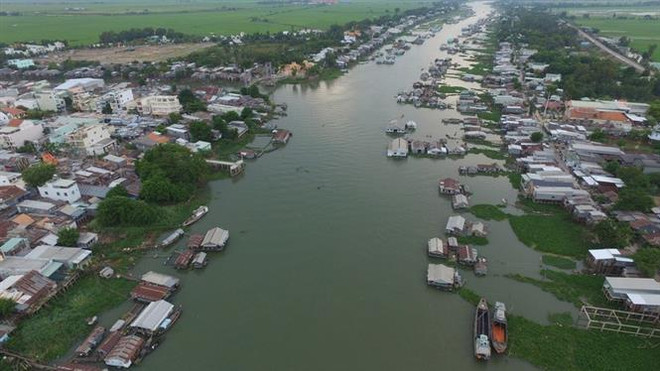The Day underscored the importance of rivers to biodiversitysince they are key to recovering and maintaining global biodiversity.
This year, countries around the world will take part in the15th meeting of the Conference of the Parties to the Convention onBiological Diversity amid the fact that the freshwater biodiversity is facingthe worst degradation.
To solve this problem, Vietnam and other countries need totake urgent and drastic moves to jointly make and implement the policies,plans, and initiatives on preventing the degradation of ecosystems for thefuture of the entire humankind.
Nguyen Thuong Hien, Deputy General Director of the VietnamEnvironment Administration at the Ministry of Natural Resources and Environment(MoNRE), said the 2020 Law on Environmental Protection and the Government’s decree issued on January 10 this year feature detailedregulations aiming at improving pollution control and biodiversityconservation.
Recently, the Prime Minister approved the nationalbiodiversity strategy by 2030 with a vision to 2050, which identified thecountry’s priorities on nature and biodiversity conservation for the time ahead- increasing the area of protected natural ecosystems, recovering and ensuringthe integrity and connectivity of ecosystems, and sustainably utilisingbiodiversity to help develop a green economy and proactively adapt to climatechange.
 A fish cage farming village on the Hau River, a distributary of the Mekong River, in Chau Doc city, An Giang province (Photo: VNA)
A fish cage farming village on the Hau River, a distributary of the Mekong River, in Chau Doc city, An Giang province (Photo: VNA)For 2022, the MoNRE’s National Center forWater Resources Planning and Investigation (NAWAPI) was tasked with makingan overall plan for the Hong (Red) - Thai Binh river basin and another for theCuu Long (Mekong) river basin to be submitted to the PM for approval.
NAWAPI General Director Tong Ngoc Thanh said to build theplans, his centre has collected additional documents and data; organisedworkshops on orientations for management, exploitation, use, and sustainabledevelopment of water resources in the Mekong Delta; and continued assessing theriver basins’ situation.
Nguyen Thi Thu Linh, Acting Chief of the Permanent Office ofthe Vietnam National Mekong Committee, pointed out that many countries in theregion and the world have voiced concerns that development activities in riverbasins, especially hydropower development, will cause many adverse impacts,notably changing river flows and levels, influencing the livelihoods of localresidents, and affecting the environment.
The office will keep a close watch on the use of water andrelated resources in the upper Mekong countries, make timely reports on hot issuesin the river basin, boost bilateral cooperation and data sharing with Laos andCambodia, and press on with negotiations on a deal on regulations for wateruse along the Vietnam - Cambodia border.
Besides, the committee will work with relevant units toenhance ties with international partners to help amend the Law on WaterResources along with the policies, programmes and projects on safeguardingwater security, thereby better serving the state management of water resources,Linh added./.






























